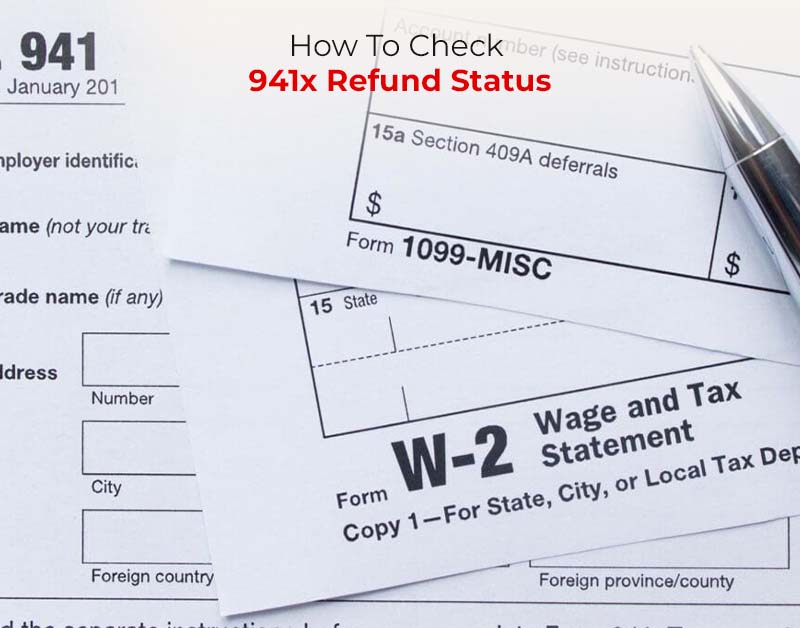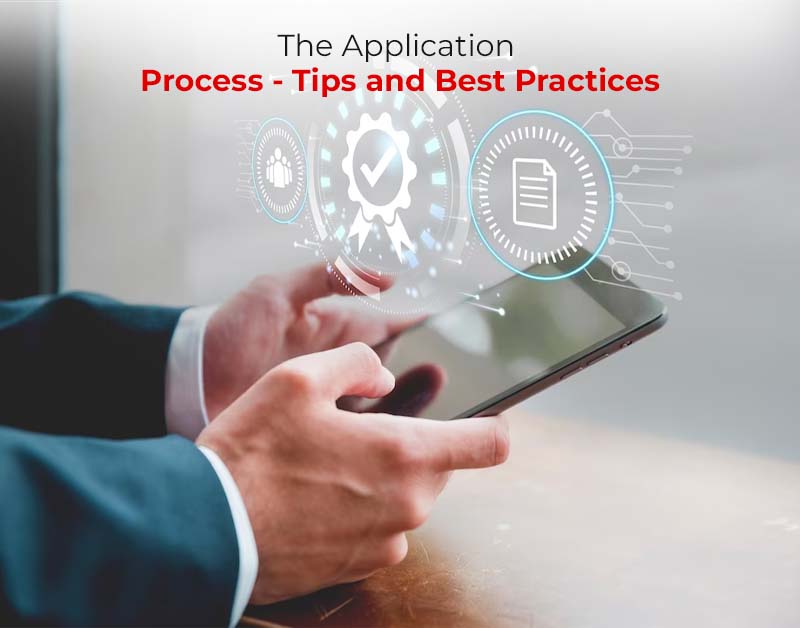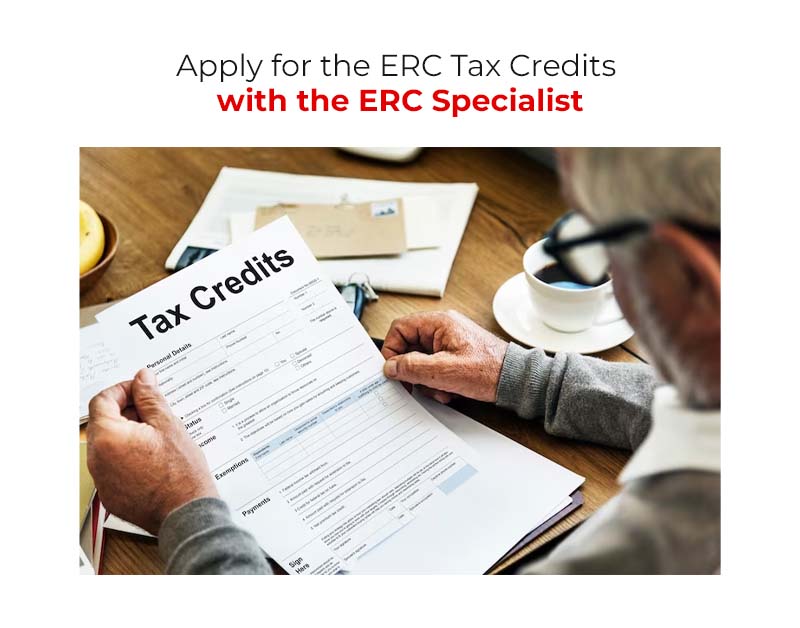Whether your business has been temporarily or permanently discontinued, it is essential to comprehend how to utilize ERC. In this blog, we outline the necessary steps, eligibility requirements, and relevant information to increase your chances of obtaining the financial aid you deserve.
Let’s delve into the definitive roadmap for closed companies seeking to unleash the ERC program’s potential. Continue reading this blog to know: Can A Closed Business Apply for ERC?
Key Takeaway
- The Employee Retention benefit (ERC) is a tax benefit intended to assist qualifying firms in retaining and compensating employees during economic difficulties, such as the COVID-19 pandemic.
- Temporarily or permanently closed businesses can apply for the ERC if they meet the qualifying criteria and submit the relevant documentation.
- Understanding ERC eligibility is critical for closed firms since it can provide financial assistance, help with business continuity planning, and has regulatory and legal ramifications.
- Under the ERC, recovery starting enterprises can claim up to 70% of eligible salaries paid to employees, up to a quarterly cap of $10,000 per employee.
- Allow ample processing time, gather essential information, and use the IRS online tool or call the specified toll-free number to verify the refund status after filing ERC Form 941-X.
- When applying for an ERC, research, acquire the necessary papers, make a checklist, and follow the instructions and formatting criteria.
- Write a clear and concise personal statement, submit it on time, get comments, and keep a positive attitude throughout the application process.
- Maintain copies of the application and follow up as needed, prepare for interviews or other stages, be organized, and be persistent if rejected.
Brief Explanation of the Employee Retention Credit (ERC)
The Employee Retention Credit (ERC) is a tax credit designed to motivate eligible employers to retain and continue compensating their employees during economic hardships. They can be such as the COVID-19 pandemic or other emergencies.
It was enacted in March 2020 under the CARES (Coronavirus Aid, Relief, and Economic Security) Act and has since been amended and expanded by subsequent legislation.
Can A Closed Business Apply for ERC?

Permanently and temporarily closed enterprises can apply for the Employee Retention Credit ERC tax credit, a valuable financial assistance program. Let’s break it down:
- Temporarily Closed Businesses
You may fit in ERC Qualifications if your business temporarily ceases operations due to natural circumstances. They can be government contracting, absence of business, or other COVID-19-related reasons. Even if you are currently unemployed, you can claim a wage credit for wages paid to employees during the government closure.
-
Permanently Closed Business
Surprisingly, you can still qualify for the ERC if your business has closed permanently. The credit may be applied to wages earned before graduation, enabling you to recoup some expenses.
In either case, the ERC can provide much-needed financial assistance during these challenging times. You must comprehend the unique requirements and compile the required documentation to support your application. Remember that seeking professional advice or consulting official guidelines can simplify the process. It can also increase your possibility of successfully submitting grant applications.
Importance of Understanding ERC Eligibility for Closed Businesses

Understanding the ERC (Employee Retention Credit) eligibility requirements is essential, even for defunct or closed businesses. The ERC intends to provide financial assistance to employers during economic downturns, such as the COVID-19 pandemic.
Although a closed business may be ineligible for the ERC, there are situations in which closed companies may still be eligible. Therefore, it is essential to determine if IRS ERC Application is an option for private companies.
-
Maximizing Financial Support
Even if a business closes temporarily or permanently, it may still be eligible for ERC. It can depend on the time it was in operation and the reasons for its closure. This credit can provide a substantial financial boost and enable the business to offset staff costs and other eligible expenses during its active existence.
-
Business Continuity Considerations
Companies that intend to reopen once conditions improve can better plan for the future if they comprehend ERC suitability. Loans can contribute to the company’s financial stability by facilitating the timely rehiring of employees and the resumption of operations.
-
Past and Future Benefits
ERC eligibility is not restricted by completion time. Employers may be able to claim the credit for compensation paid during active periods before closure and any eligible periods after reopening. This indicates that comprehension of the eligibility requirements extends beyond the imminent completion phase.
-
Compliance and Legal Obligations
The correct evaluation of ERC eligibility ensures businesses adhere to the proper guidelines and regulations. A misunderstanding of eligibility could result in improper applications or missed opportunities, which could have legal and financial repERCussions.
-
Documentation and Recordkeeping
To claim the ERC, accurate records and documentation are required. Closed businesses must provide the following:
- Evidence of their eligibility.
- The calculation of qualifying wages.
- Any other evidence is needed to support their claims.
Audits and investigations by the IRS require accurate records.
-
Financial Planning
Closing a business involves several financial and tax considerations. As part of a larger financial planning strategy, understanding ERC eligibility can help private companies optimize their tax positions and allocate resources more efficiently.
-
Professional Assistance
Determining the ERC eligibility of private companies can take time due to legal, accounting, and tax issues. Consultation with tax specialists or advisors can help you navigate the complexity and ensure that your credit evaluation and application are accurate.
-
Potential Refunds
Significant tax refunds may result if a closed business is deemed eligible for ERC. These funds may be re-invested in the company, used to satisfy outstanding obligations, or used to support the owners’ future endeavors.
Understanding the suitability of ERCs for private businesses is essential for maximizing financial support, planning future operations, and adhering to government regulations. Organizations that have ceased or suspended operations should carefully review their eligibility status and maintain accurate records.
They should also consider pursuing professional guidance to navigate the complexities of ERC and the potential benefits applicable to their particular situation.
How Much Can a Recovery Startup Business Claim?

Starting a new business can be thrilling and challenging, particularly after experiencing setbacks. The Employee Retention Credit (ERC) can provide recovery startup enterprises with a substantial financial boost. Here is what you should know:
-
Credit PERCentage
Recovery startups may claim a credit of up to 70% of qualified wages paid to employees, up to a quarterly limit of $10,000 per employee. Therefore, if you pay an eligible employee $10,000 in qualifying compensation, you may be eligible for a $7,000 tax credit.
-
Eligibility Criteria
To be eligible for the ERC, your startup’s overall sales must have decreased by at least 20% compared to a specific period in the past. You may qualify if your company is temporarily closed due to a government contract.
-
Qualified Wages
All salaries are eligible for the credit for firms with up to 500 full-time employees, regardless of whether the company was operational during the pandemic. The discount only pertains to salaries paid to underperforming employees at prominent startups.
-
Claiming the Credit
Depending on your inclination, you can claim the ERC on your employment, quarterly, or annual tax return. You can be reimbursed the difference if the credit exceeds your income tax.
-
Interaction with Other Programs
Other hosting programs, such as the Paycheck Protection Program (PPP), can be combined with ERC for different salaries. This expands the opportunities for financial support.
The ERC can be crucial to your recovery as a newly founded repair company. Consult tax experts or financial advisors to ensure that you completely comprehend the process and maximize your benefits. Remember that every dollar you save with ERC can make a substantial difference on your path to stability and development.
How To Check 941x Refund Status

If you filed ERC Application Form 941-X to correct errors on your quarterly payroll tax return (Form 941) and are eagerly awaiting a refund, you can verify its status as follows:
-
Allow Processing Time
After submitting Form 941-X, you must allow the IRS sufficient time to process your request. Before verifying the status of a refund, it is generally advisable to wait at least 8 to 12 weeks.
-
Gather Information
Ensure you have the required information before you commence. You will need your Employer Identification Number (EIN), the tax period for which information is requested, and the precise amount of reimbursement you anticipate.
-
Use the IRS Online Tool
“Where’s My Amended Return?” is an online utility the IRS provides. This enables you to monitor the status of your amended tax return, including refund details. Visit the website of the IRS and access the utility.
Then, input your taxpayer identification number, tax period, and expected refund amount. The utility will provide real-time updates on the status of your refund.
-
Check by Phone
If you prefer to inquire over the phone, dial 1-866-464-2050 to reach the IRS’s toll-free number. Check the status of your 941-X refund by following the automated prompts. When you call, have the same information (EIN, tax period, and refund amount) available.
-
Be Patient
The IRS processes numerous requests, so perseverance is required. Don’t fret if you don’t immediately see an update. The refund status information may take some time to materialize in the system. Sometimes there can also be ERC refund delays due to technical issues.
-
Follow Up If Necessary
If you have not received your refund or a status update after a reasonable time, you may contact the IRS for further assistance. For additional information, you can call the toll-free number listed above.
Using Form 941-X to check the status of your return is a simple process. Using the online utility or calling the IRS can provide certainty and clarity regarding the status of your request.
Remember that submitting quickly and accurately is essential. Always ensure that your forms are correctly filled out before submitting them.
The Application Process – Tips and Best Practices

The application process can be both thrilling and tense. It is essential to grasp the application process to effectively present yourself or your company and maximize your chances of success.
This section will provide helpful advice and best practices for safely navigating the application process when you want to Apply For ERC Grant.
-
Research and Understand the Application Requirements
Before beginning the application process, conduct extensive research on the program you are applying for. Carefully review the guidelines, eligibility requirements, and instructions.
Understanding the requirements will assist you in preparing all the required documentation and data when applying for ERC For Self-employed.
-
Gather Required Documents and Information
Collect the required documents and information for the application. This may include identification documents, financial records, references, and other specific application materials.
-
Create a Checklist
Create a checklist of all required application documents and procedures. A detailed list helps you remain organized and remember essentials.
-
Review and Edit Your Application
After completing the application, review it thoroughly for errors and mistakes. As necessary, edit for accuracy and clarity.
-
Follow Instructions and Formatting Guidelines
Follow the application instructions and formatting guidelines provided by the program. Use the required format and adhere to word or page limits for attachments.
-
Write a Clear and Concise Personal Statement
If a personal statement is required, take due care in its composition. Concentrate on highlighting your relevant accomplishments, experiences, and qualifications. Be precise and direct.
-
Submit Before the Deadline
Submit your application well before the deadline to prevent technical difficulties at the last minute. In general, submissions must be on time to be considered. Therefore, plan accordingly.
-
Seek Feedback and Review
Before submitting your application, have another person review it. Fresh eyes can identify errors and propose improvements.
-
Maintain a Positive Attitude
Maintain a positive attitude throughout the process, regardless of the result. If you fail this time, use the failure as a learning experience and attempt again.
-
Keep Copies of Your Application
Make copies of your application and all supporting materials. This will ensure you have a record of your submissions in the event of any discrepancies or queries.
-
Follow Up If Necessary
If you have the chance to consult about the status of your application, do so courteously and professionally. However, only have a few followers, as this can appear aggressive.
-
Prepare for Interviews or Additional Steps
Prepare diligently if the application process includes interviews or other steps. Learn about the program and consider any concerns during ERC refund processing time.
-
Stay Organized
Maintain an organized folder or digital space to store all application materials and communications during the application process.
-
Stay Persistent
If you are rejected, you should not be disheartened. Numerous programs are highly competitive. Continue applying for additional positions and continually improve your application. Often, persistence pays off in the long haul.
Consider that the application procedure may be competitive. However, if you adhere to these recommendations and best practices, your chances of submitting a meaningful and persuasive application will increase.
Apply for the ERC Tax Credits with the ERC Specialist

Maximize your ERC tax credits with the assistance of R&R Agency’s ERC specialists. Trust our flawless application history, ensuring a streamlined process and higher success rates.
With our in-depth expertise and personalized approach, we assist your business in obtaining the financial backing it merits. Leave your ERC claims to the experts at R&R Agency for a hassle-free experience.
FAQs
-
Who Is Not Eligible For ERC?
The following businesses do not qualify for the Employee Retention Credit (ERC):
- The government’s employers include the federal, state, and local levels.
- Businesses that have received credit relief from the Paycheck Protection Program (PPP).
- Not-for-profit organizations that do not engage in a vocation or profession.
- Companies whose gross income does not experience a significant decline.
- Proprietors or relatives of proprietors with a stake in the business.
- Employers obtain a position reduction for the same salary.
-
Does Every Business Qualify For ERC?
Only some businesses qualify for the Employee Retention Credit (ERC). The eligibility requirements established by the IRS govern eligibility. A company must have experienced a substantial decline in gross sales or a government-mandated closure due to COVID-19 to be eligible.
In addition, there are restrictions based on the number of employees and whether or not the business has previously received PPP loan forgiveness. Specific facilities, including B. Government employers and non-profit or tax-exempt non-profit organizations, are ineligible for the ERC.
-
What Qualifies A Business For ERC Credit?
Employers are eligible for Employee Retention Credit (ERC) if they meet specific IRS requirements. To be eligible, the company’s combined revenue must have decreased significantly, i.e., by at least 20% compared to a particular period.
Alternatively, the business may be eligible if it has been ordered to close in whole or part owing to COVID-19. By satisfying these requirements, the company can claim the ERC credit for compensation paid to eligible employees during the reference period.
-
Can I Apply For ERTC If I Sell My Business?
You may not be eligible for the Employee Retention Tax Credit (ERTC) for compensation paid after the sale date if you sell your business. The credit generally applies to wages paid during periods in which the company experienced a significant decline in gross sales or was required by the government to close due to COVID-19.
After selling the business, you may no longer satisfy the eligibility requirements, and the new owner, if eligible, will likely be responsible for claiming the ERTC.
Conclusion
Under certain conditions, a closed company may petition for Employee Retention Credit (ERC). Whether the closure is temporary or permanent, it is essential to comprehend the eligibility requirements and application process to access this valuable grant.
The ERC allows struggling businesses to recover the wages paid to employees during difficult times. Seeking professional counsel and adhering to IRS regulations increases the likelihood that a closed entity will receive vital ERC program assistance.
Contact us now if you want a flawless experience when applying for your ERC Credits!
R&R Agency is an agency of experts that helps business owners claim their Employee Retention Tax Credit with the IRS.


